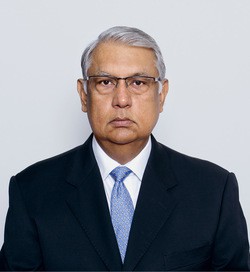Agenda for the BRICS
Pinak Ranjan Chakravarty
India is committed to the strengthening of the BRICS cooperation framework. The BRICS Delhi Action Plan, annexed to the Delhi Declaration issued by the heads of states at the Fourth Summit in New Delhi in March 2012, laid down the broad contours of cooperation under India's chairmanship of the BRICS. It provided an enabling framework for cooperation in identified areas.
India’s initiative relating to a new BRICS–led Development Bank, for mobilizing resources for infrastructure and sustainable development projects in the BRICS and other emerging economies and developing countries, is a crucial initiative that has attracted wide attention. The bank’s role would be to supplement the efforts of existing mechanisms such as the World Bank Group and other multilateral development banks. The BRICS finance ministers and technical experts are exploring the feasibility and viability of this idea.
In the run-up to the Fourth BRICS Summit in Delhi in March 2012, India hosted the first meeting of an Economic Research Group to bring economic content of the BRICS cooperation into sharper focus. The Prime Minister of India, Dr. Manmohan Singh, proposed at the Fourth Summit in New Delhi that in view of common challenges presented by urbanization for all BRICS countries, we should encourage sharing of experience in areas such as urban water supply and sanitation, waste management, storm water drainage, urban planning, urban transport and energy efficient buildings. Pursuant to this suggestion, India hosted the First BRICS Urban Infrastructure Forum in New Delhi on February 1, 2013 which facilitated sharing of experiences on water supply and sanitation, effective solid waste management for improved environment and urban transport.
The BRICS–led Development Bank’s role would be to supplement the efforts of existing mechanisms such as the World Bank Group and other multilateral development banks
India coordinated a BRICS Study with special focus on synergies and complementarities which was released at the Delhi Summit. This was initiated at the suggestion of Prime Minister Dr Manmohan Singh at the First Summit in Yekaterinburg, Russia in June 2009. A mention must also be made of the two agreements – a Master Agreement on Extending Credit Facility in Local Currencies and a BRICS Multilateral Letter of Credit Confirmation Facility Agreement – signed by the BRICS Development Banks at the Fourth Summit. These are enabling instruments to reduce trade transaction costs and thus significantly promote intra-BRICS trade.
BRICS Track-II engagement among the leading think-tanks of the five countries was formalized by India in their first meeting in New Delhi in May 2009, before the First Summit in Yekaterinburg, Russia in June 2009. The leading Indian think-tank, Observer Research Foundation, in consultation with its BRICS counterpart think-tanks, has worked on the 'Long Term Vision for the BRICS' proposed to be presented at the Fifth Summit in Durban in March 2013.
A number of the BRICS activities and meetings have been held under India’s chairmanship since the Fourth New Delhi Summit in March 2012. The BRICS foreign ministers met on the sidelines of the UN General Assembly in New York in September 2012. The BRICS trade ministers met in Puerta Vallarta, Mexico in April 2012 on the margins of G20 Trade Ministers' Meeting. The BRICS health ministers and the BRICS high representatives responsible for the national security met in New Delhi on January 10-11, 2013. Other meetings include those of finance ministers and central bank governors on the sidelines of G20 meetings and other multilateral (WB/IMF) meetings; two meetings of CGETI (Contact Group on Economic and Trade Issues); a preparatory meeting of experts on agro-products and food security issues and the second Meeting of Agriculture Expert Working Group; the BRICS agriculture experts on climate change and food security; the Second BRICS Senior Officials’ Meeting on Science and Technology; and the second BRICS Friendship Cities and Local Governments Cooperation Forum in 2012 in Mumbai. India will host the Third Meeting of BRICS Competition Authorities in November 2013; BRICS Competition Authorities hold regular biennial meetings since their first meeting in Russia in 2009.
Useful platform
BRICS serves as a useful platform for consultation, coordination and cooperation on issues of mutual interest to all five constituents in an environment of mutual trust and understanding. It has facilitated the evolution of convergent positions on many global issues such as reform of IFIs, support for a democratic and multi-polar world order, WTO, sustainable development, and certain regional and political issues.
The BRICS countries are together working in an environment wherein supply side constraints, including the challenges of the global economic slowdown, volatility in financial flows and food and energy security are prevailing trends. Maintaining the pace of high economic growth and reconciling developmental needs with the imperatives of sustainability and inclusiveness, are major challenges for the BRICS countries.
The BRICS process is relatively new. It is exploring new forms of cooperation. We wish to strengthen cooperation under BRICS in a gradual manner; consolidating on the existing areas and simultaneously exploring new areas. Our objective is to project BRICS as a serious and effective grouping in the global discourse.
India looks forward to the Fifth Summit in Durban in March 2013, where the responsibility of chairmanship of the BRICS passes from India to South Africa. The Durban Summit will be a historic opportunity for the BRICS Leaders to review progress so far and lay down a future roadmap for more intense cooperation.











